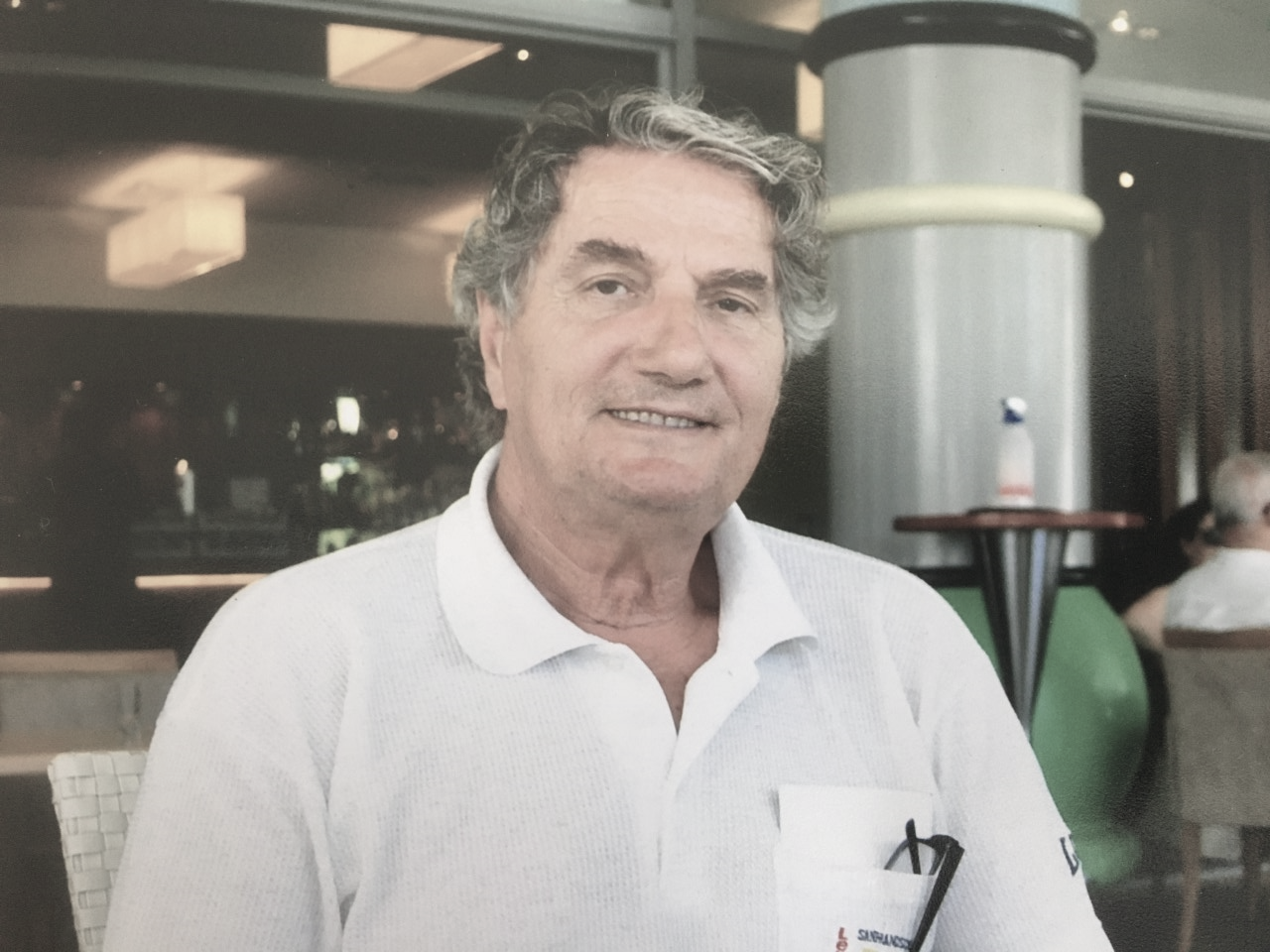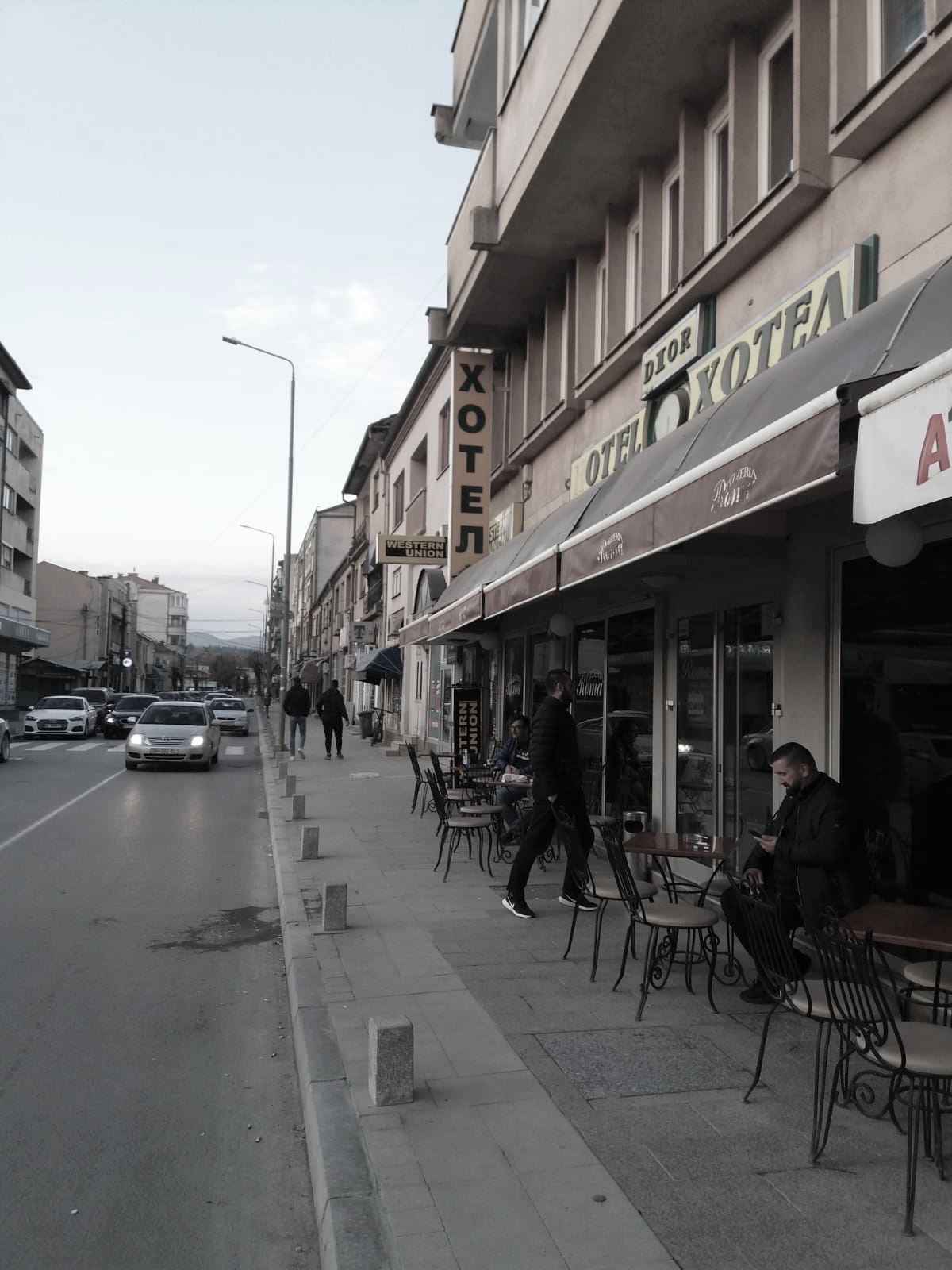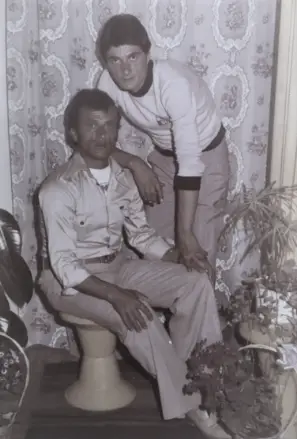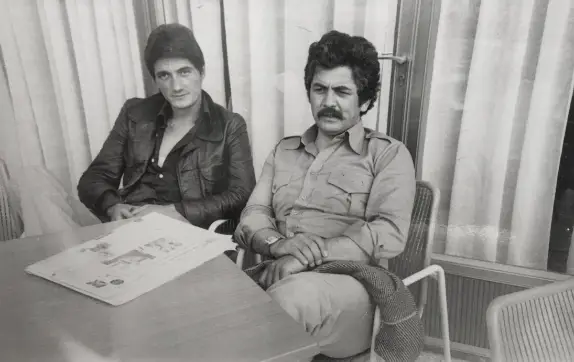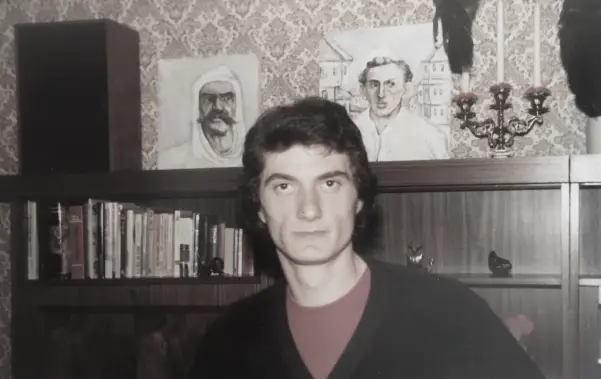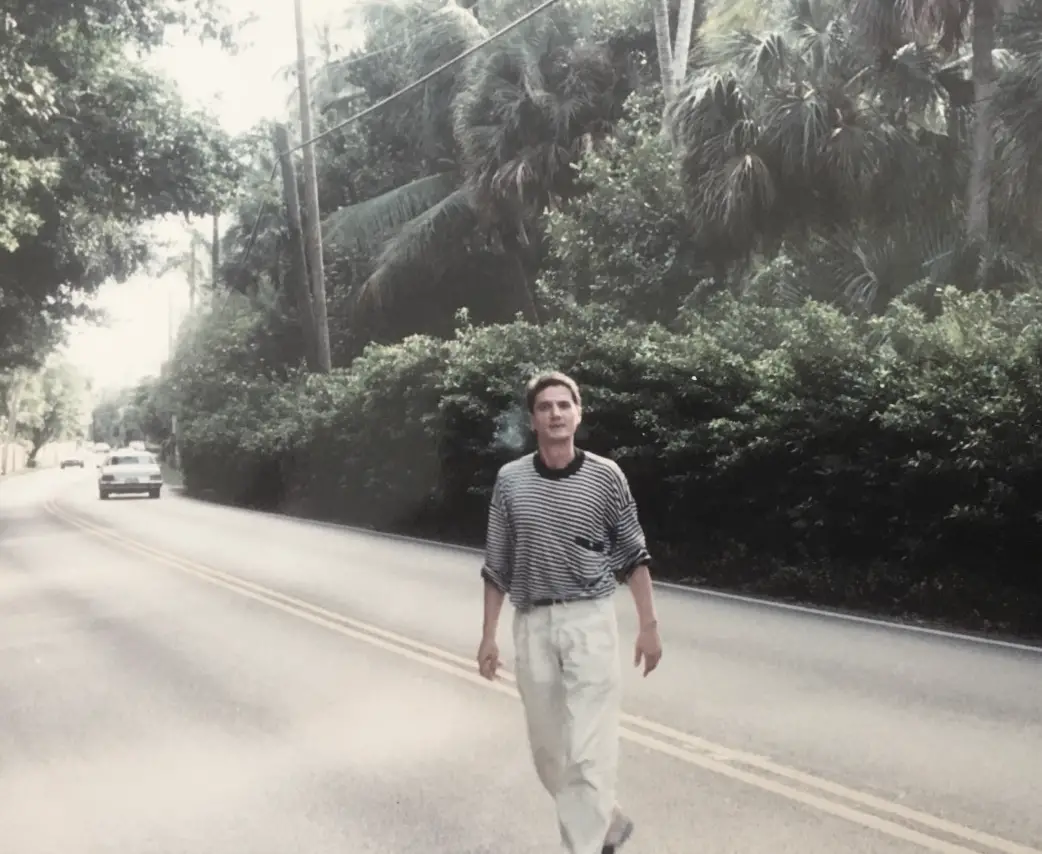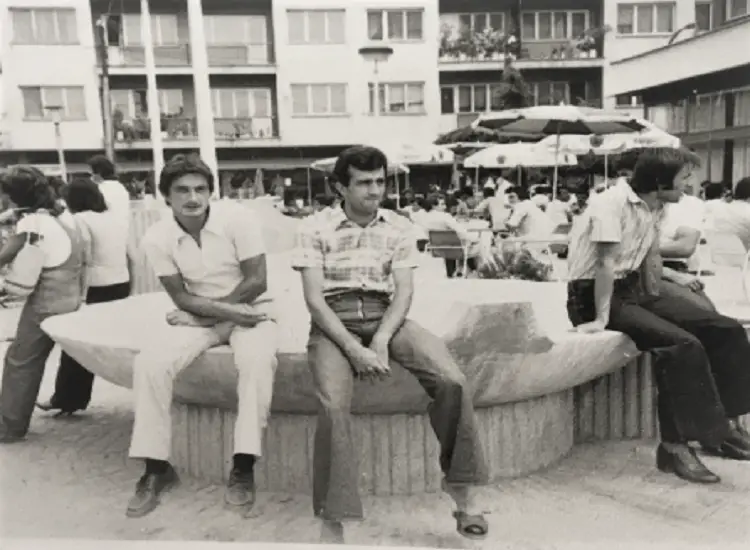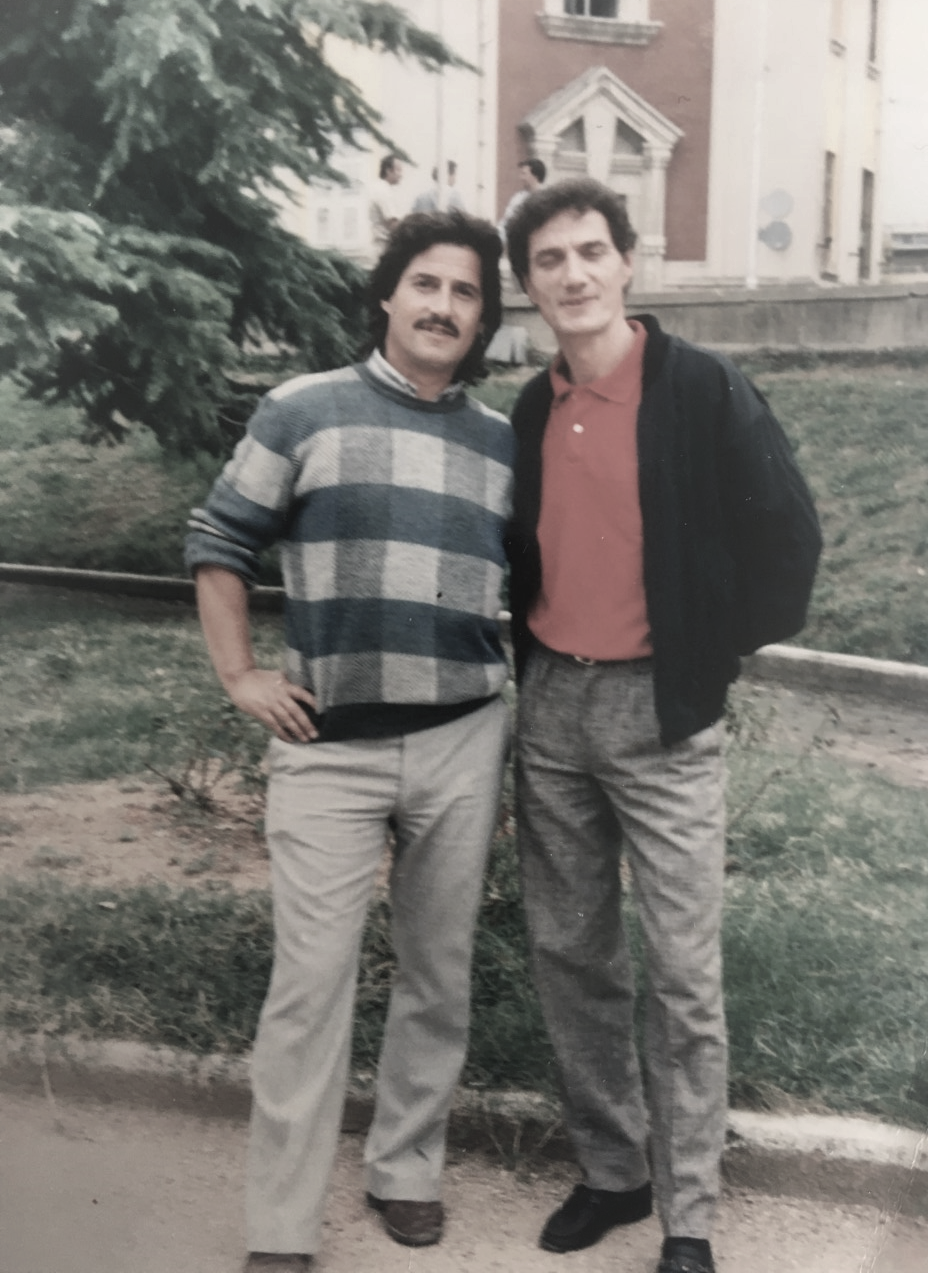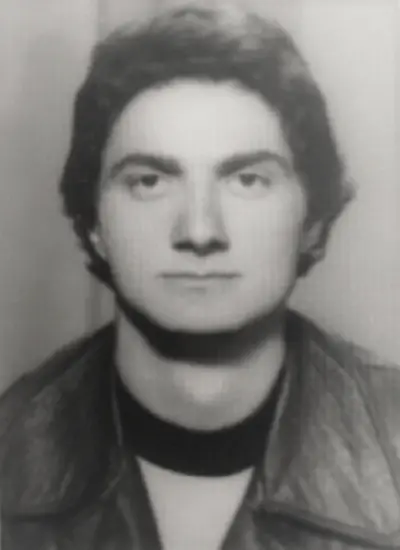From Uvil Zajmi
Second part
Memorie.al / The escape of Mustafa Korça were not an escape like the others. Of course, sensational like all in that period, for the challenge, the courage, the way, above all for the alarm, the blow that this event gave to the prepotent, aggressive, isolationist and dictatorial state. But Muç Korça’s was different: A 21-year-old young man, artist, painter, sculptor, and escapes by abandoning the border point, the pyramid, where he was assigned to perform military service, even together with the “Kallash” who had given to protect the border from “external and internal enemies”! The surprising news spread quickly: “Muc Korça has escaped… he has escaped.” He also left a letter.” Today, after nearly half a century, Mustafa Korça (Muçi) returns to that event, the moment he made the decision, the letter he left behind, crossing the border, dawning on December 21, 1978. “I escaped because I was denied the right to study”, he says. Mustafa recounts his stay in Yugoslavia, Italy, Belgium, life in Sweden, then in the USA. The desire to meet the players of “Partizani” in Malmo, where he also met the son of Enver Hoxha and Mehmet Shehu and their companion, Gani Kodra, with the dancers of the State Ensemble of Folk Songs and Dances in Hamburg and Gothenburg , etc. Muçi still keeps letters, postcards, documents, rare photos of the time. He has not changed; he is the calm Muç Korça, with a measured judgment and reasoning. “Some time ago I was in Resnje, Macedonia, the city where I stayed after escaping. I had never been before”, he says in this interview.
Continues from last issue
Mr. Mustafa, where did you go after Yugoslavia?
Together with the two Albanians we went to Italy. An Italian picked us up on the highway and directed us to Trieste, to the quaestura. They sent us to Patriciano, 10 km. outside the city. They put us in a camp, where they gave us documents that we were political immigrants. They asked us how we escaped from a communist country and for that they took us under protection. They asked us: “Where are you going, what is your religion”? I am an atheist, I replied to the officer who confused the word atheist with communist. “Mustafa, you are a Muslim”, he said to me with surprise.
How were you treated there and how long did you stay?
We were treated well there. I used to go out by bus, walk calmly, but I have to wait from 6 months to a year, to get political asylum. After a couple of months of staying there, I met a Kosovar, surnamed Vokshi from Gjakova, who spoke English well and knew the area well. After we talked at length, I gained confidence and decided to leave Italy and we both left for Brussels by train. It was not difficult, as the controls were formal.
How long did you stay in Brussels?
In Brussels there was an Albanian neighborhood, “Skarbec”, it was also called a cafe with Kosovars, who, after being informed about us, started a “Mercedez” taxi for us, which picked us up and took us to the Islamaj family. They were very honorable families, old birders, and humane people with great souls, who cared and helped Albanian immigrants. I stayed there in their family for about a week. Then they escorted me to the immigration offices, registered me, and gave me an apartment to sleep in. The Islamaj family begged me not to leave Belgium, they told me to “stay here”. (I met their older brother, Liman Islamaj, in 1992 or 1993 in Tirana, but not the others).
Where did you settle after Belgium?
The psychological side was weighing me down, I was wandering the streets, why did I run away, I wondered?! In Yugoslavia, in Resnja, I had heard that the Scandinavian countries are rich; life is good, because those I talked to had their people in those countries and knew them well. Denmark, Sweden, I was obsessed. When I was still in Brussels, during the time I stayed there (almost a month), I accidentally met Halil Shala, a Kosovar from Peja, who helped me leave. He provided me with a Yugoslav passport, with a different name, which belonged to a person who looked like me. With his (Halilit’s) car, we fled from Belgium to the Netherlands, from there to Denmark and to Sweden, in Halmstad. It was the beginning of winter, it was cold and it was snowing heavily. We immediately went to the police, where I introduced myself as an Albanian, but they did not know where Albania was. When they asked me about my name, I said: “Muçi, Mustafa Korça”. Within a month they provided me with accommodation. I was educated there and after 5 years I got citizenship. I also lived and worked in Stockholm and Gothenburg.
At the beginning of our conversation, you told me a little about an episode with the football team “Partizani”, which had come to Malmo. How do you remember that event, did you manage to meet them?
In 1981, the football team “Partizani” from Albania came to Malmo, Sweden. I went to the stadium wanting to meet the players, as I knew some of them personally. I knew that it was not easy for them; it was not difficult to understand that. I saw Panajot Panon, he was very reserved. Before the game, when the teams were warming up, I signaled to Muç Fagu to inform Sul Starova, who, without any problem, came and shook my hand. At the end of the match, I went to the bus, where only Sul Starova came and met me again, as we had been friends with him since Tirana. The footballers who were on the bus opened and closed the curtains and saluted me secretly so that the managers, or rather the State Security man who accompanied them, would not see them. They had been ordered to avoid me. But I didn’t even take them for granted, especially when I saw that Enver Hoxha’s son, Iliri, was leaving the stadium behind them and coming towards the bus.
Who else was Enver Hoxha’s son there with?
Enver Hoxha’s son was with his wife, (Teuta), and Skënder Shehu, the son of Prime Minister Mehmet Shehu. Accompanying them was Gani Kodra, (senior officer of the State Security, who dealt with the accompaniment of high leadership personalities), a friend of the family and of my father.
Did you meet or greet them, how did you get to know Gani Kodra?
In those moments I felt that they were guarding me, thinking that I could react, but I didn’t even have such a thing in my head. When they were getting into a “Volvo” car, Ganiu, who knew me well because I was friends with his son, (Gencin, former basketball player with “Dinamon”), approached me and said: “You don’t have shame that you came here”.
How did you answer?
I didn’t speak at all, just nodded a little ironically and they left.
Have you had other occasions when you met with Albanians who came there from Albania, i.e. athletes, artists, etc.?
A month later, the Book Fair opened in Gothenburg. I went because I wanted to meet Albanians, as I longed to exchange a few words with them. (Who has experienced the situation that I went through as a fugitive, understands me quite well). Seeing the fair, a security employee of the Albanian embassy, who was also in the stadium when “Partizani” came, saw me, recognized me and pointed to a Kosovar with whom he was hanging out? As soon as he approached, he addressed a friend of mine, also a Kosovar: “Why do you hang out with a reactionary like this”. And in his tone, he addresses me: “You have no shame, you came to the Fair”?!
How did you react?
I told him: while you, together with Enver Hoxha’s son, tour the Western countries with free tickets and planes from the state, it was you who forced us to take the mountains…! They didn’t talk to me and left. After these, I had other occasions when I also met with artists of the State Ensemble from Tirana.
Where and how did you meet them?
In Hamburg in 1981, I met them. After I learned that the ensemble would come there for a performance, I went from Sweden to one of the concerts that took place in an amusement park. I knew most of them, as I had worked for some time at the Opera as a scenographer. I remember meeting Panajot Kanaçi, Besim Zekthi, Gëzim Keta, while some others avoided me. I was with a girl, her name was Madalena, and they were filming me. When the show was over, they boarded the bus and closed the curtains, as they had been advised to do. I followed them to the hotel where they were staying, but they entered quickly and I could not meet anyone else.
When and how did you get to America?
In 1985, I went from Sweden to the USA twice, and the third time, I decided to stay in New York. There I worked in a decoration company and in the “Metropolitan Museum”. I only saw my work and did not mix with anyone, as I did not have many friendships with anyone. I didn’t have residence papers and I went back and forth to Sweden. I kept a good attitude and presented myself as an Albanian, wherever I was.
Were you able to communicate with your family while you were in those states?
For a long time I could not communicate and I had no possibility of any information about what had happened to them. Only after four years, I received an answer to one of my letters, which after a year had been delivered. I also sent postcards with drawings of my profile, (as you can see) and I have saved them all, documents, photos of the time, those before and during the escape.
When did you first return to Albania?
I returned to Albania for the first time in 1992. I had not seen my people for 14 years, you can’t imagine the meeting with my family and the longing that I had…!
Did you start a family where you lived?
No, I am not married, although I have had occasions, such as one in New York that I have regretted. I did not abuse, I lived well, I speak several languages and in Stockholm, (after returning from the USA), in 1993, I worked in the immigration office. Kosovars have loved me, helped me and this is a great truth.
Today, after so many years, how do you judge your escape, do you regret it?
Its years of life left behind. I regret it too, but I left of my own accord and returning had consequences. Those from the embassy in Stockholm sent me word, return to Albania, you will have no consequences. But I had set a condition; if they guaranteed me that I would receive a minimum sentence, which they refused. I didn’t believe him, so I didn’t come. How many times I wonder with today’s judgment, would I escape. I find it difficult to answer, of course “no”, but also “yes”, with such an unnecessary, primitive dictatorship, such as that of Enver Hoxha and his successor, Ramiz Ali. Memorie.al




